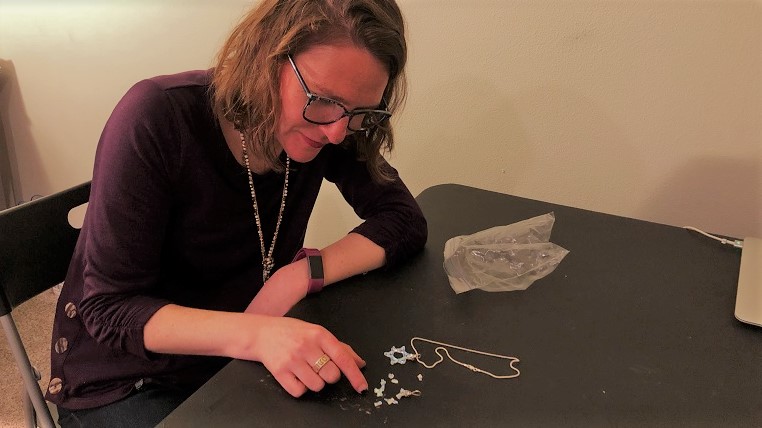Believe it or not, I sat down to write this d’var Torah a year ago. I like to at least have drafts done far in advance so that I can pivot and adjust if needed. As I sat here to write, I remember in detail receiving the startling information of a tragic loss in our community that would have ripple effects for years to come. I rushed out of the office (the office was still open at that point) to hold the family and take care of logistics and other pieces before returning to finish this drash. But it was clear to me what I needed to write about. I came back and sat down five days later to try in some way to “become whole” through the writing and my writing process.

This week as we begin Sefer Vayikra, the Book of Leviticus, we find ourselves immersed in the listing of mitzvot (commandments) on how to live our lives. This begins with the explanation of the sacrifices that we are to give daily, weekly, and yearly. We learn that there can be a sacrifice made in times of joy and in times of sorrow. There is a special sacrifice for being guilty of a sin and others for complete thanksgiving. As Sefer Vayikra continues, we learn about the laws of how to treat one another, how to engage in holy relationships, and how our calendar and meals should reflect our innermost values and desires.
One of the offerings we are asked to give is the zevah shlamim. This offering is brought by someone who has had something to celebrate. It is almost always an individual offering, never communal, because gratitude is personal and individual. Further, the word shlamim comes from the same root as shalom, which can mean “to be whole.” The offering is made with a sense of being at peace. The Torah teaches us that this offering must be eaten on the day that it is brought or the next day at the latest. Perhaps this is to encourage those with gratitude to invite others to join their celebration, because typically joy increases when we come together.
On that fateful afternoon when I was writing this drash I received a call. Vayikra. And that call brought a community together to hold the broken pieces and find a way towards wholeness and towards peace. The Torah is not suggesting that all communal moments must be joyful, and needless to say this moment was not. Instead, our sacred text is meant to give us, on the one hand, guidelines for holding those moments of joy and gratitude and, on the other hand, guidelines for holding each other in grief and sorrow. As we pass another year anniversary, the anniversary of when COVID-19 changed all our lives, it’s yet another reminder that we are still holding broken pieces, and there’s much work left to be done to make ourselves whole again.



